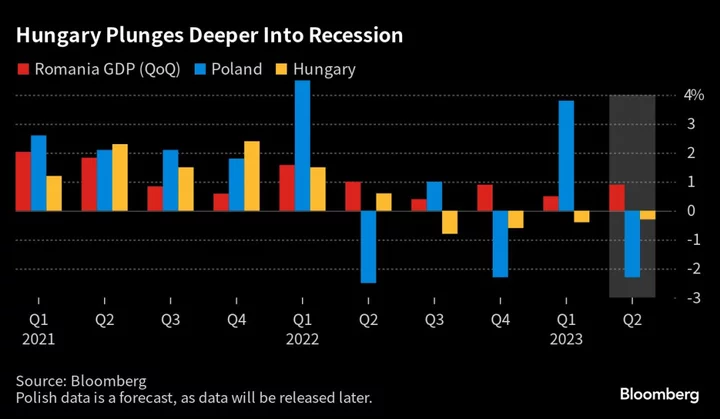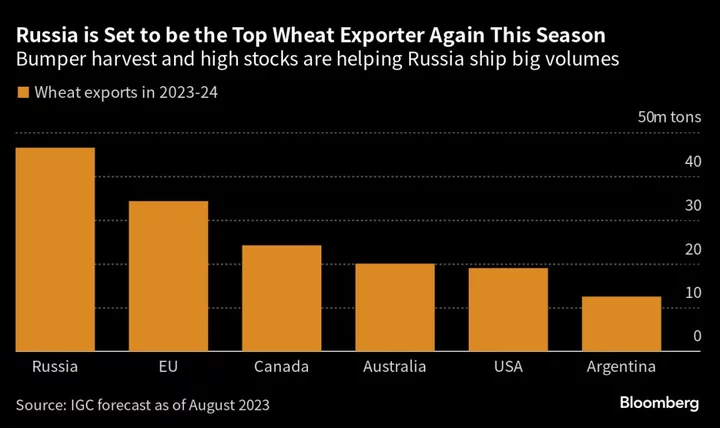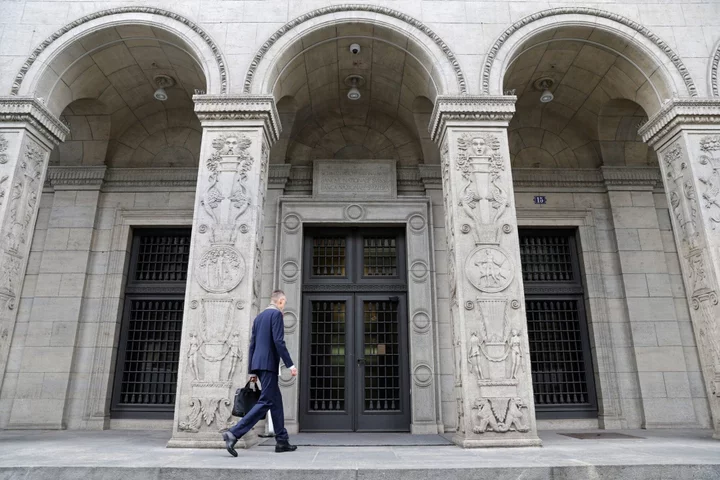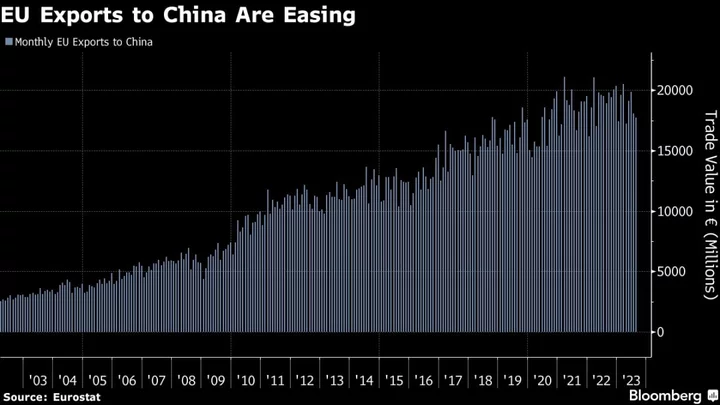Hungary unexpectedly plunged deeper into recession for the longest economic contraction in at least 28 years as the war in Ukraine continued to undermine economic growth across the European Union’s eastern wing.
Hungary’s economy shrank 0.3% from April to June compared with the previous three months, a fourth consecutive contraction that defied expectations of analysts in a Bloomberg survey for 0.2% growth. The economy shrank 2.4% from a year earlier, the statistics office said Wednesday. Four quarterly contractions in a row is the most since records began in 1995.
“We believe that the negative surprise stems from two factors: a weaker-than-expected positive contribution from the agriculture and services fell off from a cliff,” said Peter Virovacz, a senior economist at ING. The latter is a result of the ongoing cost of living crisis.”
Poland, the region’s largest economy, probably dropped 2.3% in the second quarter from the previous three months, according to another survey, for the third non-consecutive contraction since last year. Facing the fastest price growth in a quarter century, it is expected to have shrunk 0.3% on an annual basis.
The impact of Russia’s invasion has driven inflation to double digits in Europe’s worst cost-of-living crisis in decades and prompted central banks to clamp down by raising interest rates. That’s translating into lower spending from businesses and consumers, which is stifling the economic expansion for most of the economies from the Baltic to the Black Sea.
Tomas Dvorak, a senior economist at Oxford Economics, said the constricting impact of inflation and tighter monetary policy should have begun to ease at the end of last quarter, even as weak demand in the euro area is crimping demand for exports.
“As inflation eases and central banks increasingly look toward normalizing policy, domestic demand should see some pick-up,” Dvorak said in an email before the Hungarian data release. “But we think this will be very gradual, not reaching any significant speed before the end of the year.”
The cost-of-living crisis in Poland’s $690 billion economy is a major point of contention in the run-up to the nation’s Oct. 15 elections, where the ruling Law & Justice party is leading opinion polls but looks set to fall well short of a majority.
The trend extends further across the region. In the Czech Republic, where inflation fell to single digits for the first time in 16 months in June, the economy grew just 0.1% from the previous quarter.
Romania has been an outlier, with steady advances of gross domestic product since the pandemic. It expanded a better-than-expected 0.9% on a quarterly basis, while it grew 1.1% compared with the previous year, according to data published Wednesday.
Elsewhere in the region, Slovakia grew 1.5% on an annual basis, beating expectations, while Serbia posted stronger-than-expected 1.7% growth from a year earlier. The forecast for Bulgaria, which will publish its data on Wednesday morning, shows weakening but steady growth.
--With assistance from Marton Kasnyik.
(Updates with economist comment in third paragraph.)









